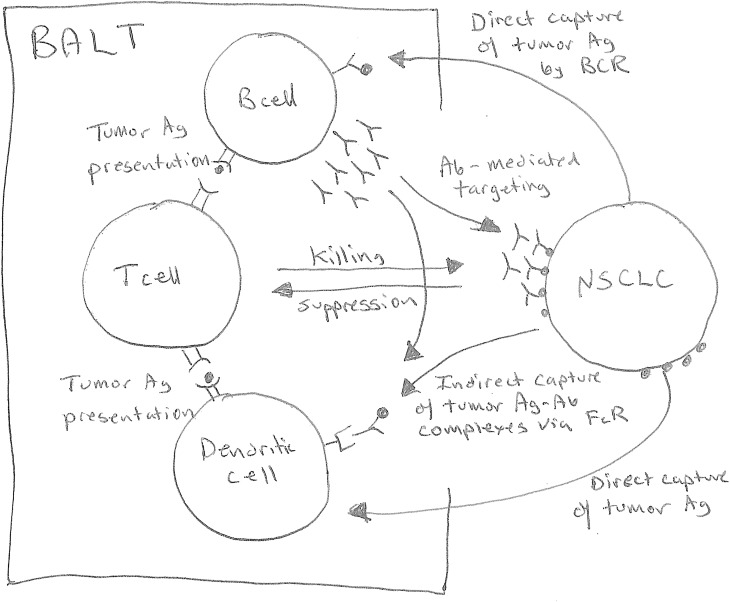Figure 1.
Role of bronchus-associated lymphoid tissue (BALT) in immunity to lung cancer. B cells in BALT may facilitate antitumor immune responses by directly acquiring tumor antigens via tumor antigen–specific BCR and presenting processed tumor antigens to T cells. B cells may also produce tumor antigen–specific antibodies that bind tumor antigens and generate immune complexes that are taken up via FcR on dendritic cells, which then present processed tumor antigens to T cells. Once activated, T cells may kill tumor cells directly or may recruit inflammatory cells that either kill tumor cells or impair their growth. Tumor antigen–specific antibodies may also directly target tumor cells for destruction via complement-mediated or natural killer cell–mediated destruction. The presence of BALT adjacent to the tumor site facilitates antigen capture as well as the interactions between various immune cells that lead to immune activation and overcome tumor-mediated immune suppression. BCR = B-cell receptor; FcR = receptor for antibody constant region; NSCLC = non–small cell lung carcinoma.

